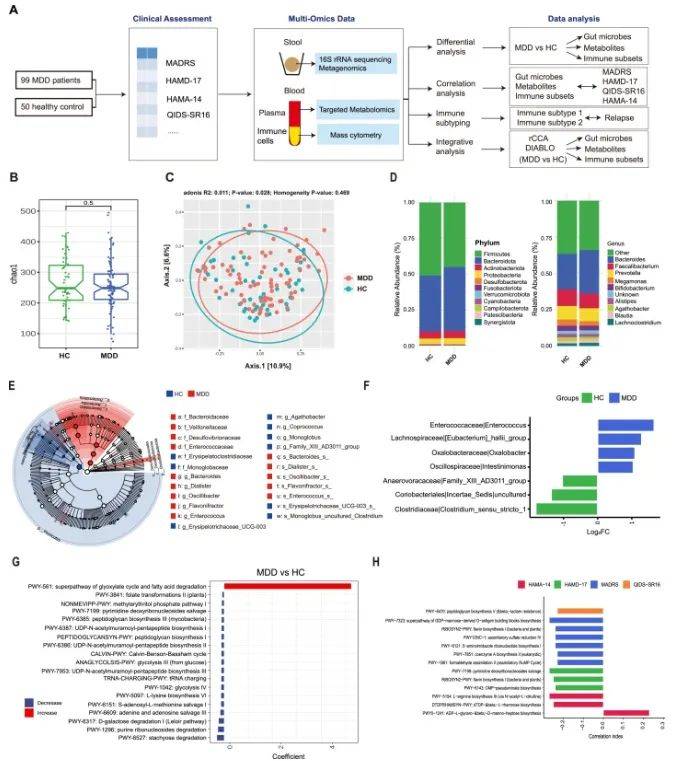Hello, today I am here to share with you the topic of “Integrated multi-omics analysis reveals gut microbiota dysbiosis and systemic disturbance in major depressive disorder.” Major depressive disorder (MDD) involves systemic changes in peripheral blood and gut microbiota, but currently there is a lack of complete understanding of the pathogenesis of MDD.
Research Background:
MDD involves systemic changes in peripheral blood and gut microbiota, yet the current understanding is not comprehensive. Here, we conducted multi-omics analysis on fecal and blood samples obtained from an observational cohort, including MDD patients (n=99) and healthy controls (HC, n=50). 16S rRNA sequencing of the gut microbiota showed structural changes in MDD, characterized by an increase in Enterobacteriaceae.
Metagenomic sequencing of the gut microbiota revealed significant changes in metabolic pathways such as upregulation of the tricarboxylic acid cycle and downregulation of fatty acid degradation and other pathways in MDD. Plasma metabolomics results indicated decreased levels of amino acids and bile acids in MDD patients, with increased levels of sphingolipids and cholesterol esters. Notably, metabolites involved in arginine and proline metabolism decreased, while those in sphingolipid metabolism increased. Mass cytometry analysis of blood immune cell subtypes showed an increase in pro-inflammatory immune subsets and a decrease in anti-inflammatory subsets in MDD.
Furthermore, our results identified factors related to the severity of MDD. Interestingly, we classified MDD into two immune subtypes highly associated with disease recurrence. Additionally, we established discriminative features between MDD and HC. These findings contribute to a comprehensive understanding of the pathogenesis of MDD and provide valuable resources for discovering biomarkers.
Refer to Figure 1:
Design and changes of gut microbiota in MDD research.
Refer to Figure 2:
Changes in plasma metabolites in MDD.
Refer to Figure 3:
Changes in blood immune cell phenotype in MDD.
Refer to Figure 4:
Immune subtypes of MDD and their association with recurrence.
Refer to Figure 5:
Discriminative features between MDD patients and HC. Integration of three omics datasets: immune cells, metabolites, and microbiota. Pri.


